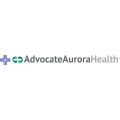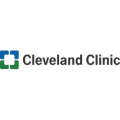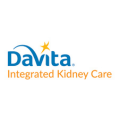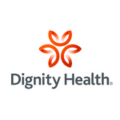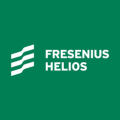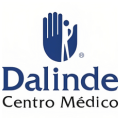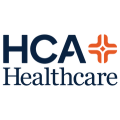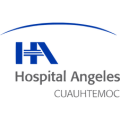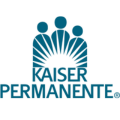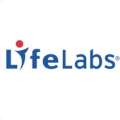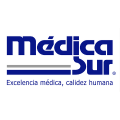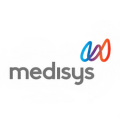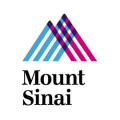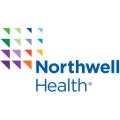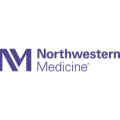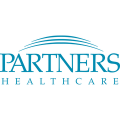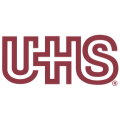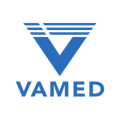Index for Contents on This Page:
Applications & Benefits of GAO’s RFID, BLE, IoT & Drones for Outpatient Care Centers
GAO Helps Customers Comply with Standards, Mandates & Regulations of Outpatient Care Centers
GAO Software Provides Easy Integration with API
Case Studies of RFID, IoT & Drone Applications
GAO RFID Systems & Hardware for Outpatient Care Centers
Related Products & Systems on Other Pages on This Website
GAO RFID Counseling & Psychotherapy Clinics RFID Solutions
GAO RFID Dental Office Asset Management Solution
People Tracking System for Education & Healthcare Institutions
Applying RFID to Ambulance Services
BLE | Bluetooth Low Energy | BLE Gateways & Beacons – GAO RFID
RFID Readers | Buy RFID Readers | RFID Reader Writers – GAO RFID
RFID Tags | Buy RFID Tags – GAO RFID
People Tracking RFID Tags and Wristbands
On Metal RFID Tags – All Types
Overview
Outpatient care centers comprise healthcare facilities designed to deliver medical services without requiring overnight hospitalization. They offer a diverse range of medical, diagnostic, therapeutic, and preventive services on an outpatient basis. The core objective of these centers is to provide convenient and cost-effective healthcare, enabling patients to access necessary medical attention without prolonged hospital stays. These centers encompass various specialties, including medical clinics offering primary and specialty care, diagnostic centers providing tests and imaging, surgical facilities for minor procedures, urgent care centers addressing non-life-threatening issues promptly, rehabilitation centers aiding recovery, mental health and counseling centers, as well as centers for radiation, oncology, dialysis, and preventive care. The industry has expanded in response to the need for accessible and efficient healthcare options, catering to patients’ schedules and leveraging medical advancements to conduct procedures safely in an outpatient setting.
GAO’s RFID, BLE, IoT, and drone technologies have helped its customers in Outpatient Care Centers Industry to improve their work processes, their operations and productivity by better management of their staff, materials and operational equipment such as examination tables, medical instruments such as blood pressure monitors and stethoscopes, diagnostic tools like X-ray machines and ultrasound equipment, surgical and procedure room essentials such as anesthesia machines and surgical lights, rehabilitation equipment like exercise machines and physical therapy modalities, dialysis machines and chairs, equipment for mental health services and counseling, radiation therapy machines and protective gear for oncology, emergency equipment including defibrillators and triage supplies, wellness and preventive care tools like vaccination supplies and health screening equipment, as well as office and administrative essentials such as computers, electronic health record systems, and billing software.
Ranked as one of the top 10 global RFID suppliers, GAO RFID Inc. is based in New York City, U.S. and Toronto, Canada. GAO offers a comprehensive selection of UHF, HF (including NFC) and LF RFID (radio frequency identification) readers and tags, BLE (Low Energy Bluetooth) gateways and beacons, and various RFID and BLE systems such as people tracking, asset tracking, access control, parking control, fleet management, WIP (work in progress), traceability. Such RFID and BLE products and systems, as well as its IoT and drone technologies, have been successfully deployed for Outpatient Care Centers. Its sister company, GAO Tek Inc. https://gaotek.com, is a leading supplier of industrial or commercial testers and analyzers, drones, and network products.
The targeted markets of both GAO RFID Inc. and GAO Tek Inc. are North America, particularly the U.S., Canada, Mexico, and Europe. As a result, this website gaorfid.com is offered in English and other major languages of North America and Europe such as Spanish, French, German, Italian, Polish, Ukrainian, Romanian, Russian, Dutch, Turkish, Greek, Hungarian, Swedish, Czech, Portuguese, Serbian, Bulgarian, Croatian, Danish, Finnish, Norwegian, Slovak, Catalan, Lithuanian, Bosnian, Galician, Slovene, Latvian, Estonian, Welsh, Icelandic, and Irish.
Applications & Benefits of GAO’s RFID, BLE, IoT & Drones for Outpatient Care Centers
To satisfy its customers, GAO’s RFID or RFID Systems for Outpatient Care Centers are offered in 2 versions. One version is that its software is running on a local server that normally is on our client’s premise, and another version runs in the cloud. The cloud server could be GAO’s cloud server, client’s own cloud server or a cloud server from one of the leading cloud server providers such as Amazon Web Services (AWS), Microsoft Azure, Google Cloud, IBM Cloud (formerly SoftLayer), Oracle Cloud, RedHat, Heroku, Digital Ocean, CloudFlare, Linode and Rackspace. The above illustrates GAO system for sub-industry Outpatient Care Centers software running on a local server.
The above illustrates GAO system for Outpatient Care Centers with its software running in cloud.
GAO’s RFID and BLE technologies, consisting of RFID readers, RFID tags, BLE gateways, BLE beacons, software, cloud services and their systems, have the following applications in Outpatient Care Centers industry:
- Patient Identification and Tracking: RFID wristbands or badges can be used to accurately identify patients, preventing errors in medication administration, procedures, and ensuring proper care.
- Asset Tracking: RFID tags can be attached to medical equipment, wheelchairs, and other assets, allowing staff to easily locate and manage equipment as needed.
- Inventory Management: RFID technology can automate inventory tracking of medical supplies, medications, and other consumables, streamlining restocking processes and reducing stockouts.
- Medication Management: RFID tags on medication packaging can help verify correct medications and dosages for patients, reducing medication errors.
- Patient Flow Optimization: RFID systems can monitor patient movement through the care center, identifying bottlenecks and enabling staff to optimize workflows for improved patient experiences.
- Access Control: RFID-enabled access badges can restrict access to authorized personnel-only areas, enhancing security and privacy.
- Electronic Health Records (EHR) Integration: RFID tags can be linked to patient records, allowing for automatic updating of EHRs as patients move through different stages of care.
- Patient Engagement: RFID-enabled patient portals or apps can provide patients with real-time updates on their appointments, wait times, and relevant health information.
- Emergency Response: RFID-enabled tags can provide critical patient information in emergency situations, helping healthcare providers quickly access essential medical data.
- Temperature Monitoring: RFID temperature sensors can be used to monitor the temperature of medications, vaccines, and sensitive equipment, ensuring compliance with storage requirements.
- Hygiene Compliance: RFID technology can track hand hygiene compliance among healthcare providers, promoting infection control measures.
- Billing and Documentation: RFID can assist in automating billing processes by accurately recording patient encounters and services rendered.
- Patient Discharge and Follow-up: RFID tags can facilitate a seamless patient discharge process, automatically triggering follow-up appointments and sending post-care instructions.
- Patient Education: RFID-enabled displays or devices can provide patients with relevant health information and educational materials during their stay.
- Tracking Patient Wait Times: RFID can help measure and manage patient wait times, allowing care centers to improve efficiency and patient satisfaction.
- Personalized Care: RFID data can be used to personalize patient care plans based on individual needs and preferences.
GAO’s drone technologies find the following applications in the Outpatient Care Centers industry:
- Medical Supply Delivery: Drones can be used to transport medical supplies, medications, and lab specimens between outpatient care centers, clinics, and hospitals, especially in remote or hard-to-reach areas. This can expedite the delivery process, ensuring timely access to essential resources.
- Emergency Response: Drones equipped with medical kits and defibrillators can reach emergency situations quickly, providing immediate medical aid before professional responders arrive. This is particularly valuable in situations where rapid response is critical.
- Telemedicine Support: Drones equipped with telemedicine equipment, such as cameras and communication devices, can establish real-time video connections between healthcare providers and patients, enabling remote consultations, diagnostics, and even virtual examinations.
- Patient Monitoring: Drones equipped with sensors and cameras can aid in monitoring patients’ vital signs, tracking their movements, and ensuring their safety, especially for those with limited mobility or at-home care needs.
- Health Outreach Programs: Drones can be used to support health outreach programs in underserved areas, providing medical personnel with a means to conduct health screenings, deliver vaccinations, and educate communities about health practices.
- Sample Collection and Delivery: Drones can efficiently transport medical samples (such as blood, urine, or tissue) from remote or rural locations to laboratories for testing, expediting the diagnosis process.
- Remote Imaging and Assessment: Drones equipped with high-resolution cameras and sensors can capture images and data from inaccessible areas, aiding in the assessment of environmental hazards, disease outbreaks, and disaster-stricken regions.
- Medication Dispensing: Drones can deliver prescription medications to patients’ homes, especially for those with chronic conditions who require regular medication refills.
- Disaster Relief: In the aftermath of natural disasters, drones can be used to assess damage, locate survivors, and provide medical supplies to affected areas where traditional transportation might be hindered.
- Health Education Campaigns: Drones equipped with audio and visual equipment can facilitate health education campaigns by broadcasting messages, instructions, and educational content to communities, promoting healthier behaviors and practices.
- Security and Surveillance: Drones can enhance the security of outpatient care centers by providing real-time surveillance, monitoring unauthorized access, and ensuring the safety of patients and staff.
- Infrastructure Inspection: Drones can be used to inspect the physical infrastructure of outpatient care centers, helping to identify maintenance needs and potential safety concerns.
GAO’s IoT technologies, consisting of IoT sensors, sensors networks and systems, find the following applications in the Outpatient Care Centers industry:
- Remote Patient Monitoring: IoT devices such as wearables (smartwatches, fitness trackers) can monitor patients’ vital signs, activity levels, and health metrics remotely. This helps healthcare providers track patient progress and intervene if any concerning changes occur.
- Medication Adherence: IoT-enabled pill dispensers and medication tracking devices can remind patients to take their medications on time and provide alerts to both patients and healthcare providers if doses are missed.
- Telehealth and Telemedicine: IoT facilitates remote consultations and medical appointments through video conferencing and connected medical devices, allowing patients to receive care without traveling to the care center.
- Health Tracking and Wearables: Patients can use wearable IoT devices to track their exercise, sleep patterns, heart rate, and other health metrics. This data can be integrated into electronic health records and shared with healthcare providers for a more comprehensive view of patients’ health.
- Smart Home Healthcare: IoT-enabled smart home devices can monitor patients’ safety and well-being, such as detecting falls, managing home temperature and lighting for comfort, and providing alerts to caregivers or healthcare providers in case of emergencies.
- Patient Flow and Queue Management: IoT sensors can help manage patient flow within the center, reducing wait times and improving the overall patient experience.
- Asset Tracking and Management: IoT can help track medical equipment and supplies within the center, ensuring efficient usage and preventing losses.
- Energy Management: IoT-based systems can optimize energy usage within the facility, leading to cost savings and more sustainable operations.
- Environmental Monitoring: IoT sensors can monitor factors like air quality and temperature, ensuring a safe and comfortable environment for patients and staff.
- Medical Equipment Monitoring: IoT devices can monitor the status of medical equipment, sending alerts when maintenance is required or if equipment malfunctions.
- Fall Detection and Prevention: IoT sensors can be integrated into the environment to detect falls and send immediate alerts to caregivers or staff.
- Chronic Disease Management: IoT devices can monitor patients with chronic conditions, collecting data that helps healthcare providers adjust treatment plans and intervene early if necessary.
- Data Analytics and Predictive Insights: IoT-generated data can be analyzed to identify patterns and trends, enabling healthcare providers to make informed decisions for improving patient care and operational efficiency.
- Emergency Response: IoT devices can assist in emergency response by automatically triggering alarms and sending alerts to emergency services in critical situations.
- Patient Engagement: IoT applications can engage patients through personalized health information, reminders, and educational content, promoting active involvement in their own care.
GAO Helps Customers Comply with Standards, Mandates & Regulations of Outpatient Care Centers
GAO RFID Inc. has helped many companies in Outpatient Care Centers industry to deploy RFID, BLE, IoT and drone systems and to ensure such deployments complying with the applicable industry standards, mandates and government regulations:
RFID, BLE, IoT, & Drone Standards & Mandates
- EPC Gen2 (Electronic Product Code Generation 2)
- ISO 18000-6C
- ISO 14443 (NFC, Near Field Communication)
- Bluetooth 4.0 (Classic Bluetooth and BLE)
- Bluetooth 4.2
- Bluetooth 5.0
- Bluetooth 5.1
- Bluetooth 5.2
- MQTT (Message Queuing Telemetry Transport)
- CoAP (Constrained Application Protocol)
- Zigbee
- Z-Wave
- LoRaWAN (Long Range Wide Area Network)
- Thread (IPv6 over Low-Power Wireless Personal Area Networks)
- OPC UA (Open Platform Communications Unified Architecture)
- MQTT-SN (Message Queuing Telemetry Transport for Sensor Networks)
- AMQP (Advanced Message Queuing Protocol)
- 6LoWPAN (IPv6 over Low-Power Wireless Personal Area Network)
- FDA UDI Rule for Medical Devices
- HIPAA and HITECH Act for Patient Data Privacy and Security
- FDA Guidance on IoT Medical Devices
- FAA Part 107 Regulations for Commercial Drone Use
- HIPAA and Patient Privacy Concerns for Drone Use in Healthcare
US Government Regulations
- HIPAA (Health Insurance Portability and Accountability Act)
- Stark Law (Physician Self-Referral Law)
- Anti-Kickback Statute
- EMTALA (Emergency Medical Treatment and Labor Act)
- CLIA (Clinical Laboratory Improvement Amendments)
- Medicare Conditions of Participation
- FDA Regulations for Medical Devices and Drugs
- OSHA (Occupational Safety and Health Administration) Regulations
- ADA (Americans with Disabilities Act) Requirements
- Medicare and Medicaid Billing and Reimbursement Regulations
Canadian Government Regulations
- Health Canada Medical Device Regulations
- Personal Information Protection and Electronic Documents Act (PIPEDA)
- Canada Health Infoway Standards and Interoperability Specifications
- Canadian Food and Drug Regulations
- Health Professions Acts in Provinces and Territories
- Health Canada’s Good Manufacturing Practices (GMP) Guidelines
- Canadian Radio-television and Telecommunications Commission (CRTC) Regulations for Telehealth
- Workplace Hazardous Materials Information System (WHMIS) Regulations
- Accessibility for Ontarians with Disabilities Act (AODA) Standards
- Health Canada Guidelines for Telemedicine and Virtual Care
GAO Software Provides Easy Integration with API
GAO’s RFID and BLE software offers a free trial for both the server-based and cloud versions, and offers an API to the important systems in Outpatient Care Centers such as:
Personnel Management:
- Employee scheduling and shift management
- Payroll and benefits administration
- Performance evaluation and feedback tracking
- Training and certification management
- Workforce optimization and skill matching
Equipment Management:
- Maintenance scheduling and tracking for medical equipment
- Asset tracking and inventory management
- Preventive maintenance planning
- Calibration and validation management
- Equipment usage analytics and optimization
Access Control:
- Patient and staff identification through RFID or biometric systems
- Visitor management and check-in procedures
- Controlled access to restricted areas within the facility
- Electronic health record (EHR) access authorization
- Integration with security systems for emergency situations
Warehouse Management:
- Inventory management of medical supplies and medications
- Demand forecasting for medical equipment and consumables
- Just-in-time inventory practices for cost efficiency
- Barcode or RFID-based tracking for efficient stock management
- Integration with procurement and supply chain systems
Supply Chain Management:
- Supplier relationship management for medical equipment and materials
- Procurement automation and electronic purchase orders
- Vendor performance monitoring and evaluation
- Logistics tracking and real-time visibility of shipments
- Compliance with regulatory requirements for supplies
Other Applications:
- Telehealth and telemedicine platforms for remote consultations
- Patient appointment scheduling and reminder systems
- Electronic Health Record (EHR) management
- Patient feedback and satisfaction surveys
- Regulatory compliance tracking and reporting
- Data analytics for quality improvement and decision-making
- Patient education and communication platforms
- Emergency response systems and disaster preparedness plans
GAO has enabled its customers to make use of some of the leading software and cloud services in Basic Chemical Manufacturing industry. Below are some of popular software and cloud services in Outpatient Care Centers.
Workday, ADP Workforce Now, BambooHR, Kronos Workforce Ready, and Paycor. For equipment management, notable solutions comprise Tego Asset Management, Attainia Equipment Planning, and Infor CloudSuite Healthcare. Additionally, cloud services like Microsoft Azure, Amazon Web Services (AWS), and Google Cloud Platform (GCP) are commonly employed for cloud-based personnel and equipment management solutions within outpatient care centers, HID Global’s EasyLobby, Brivo Access Control, Genetec Security Center, Kisi Cloud-Based Access Control. Warehouse Management: Fishbowl Warehouse, SkuVault, Logiwa WMS, PeopleVox. Supply Chain Management: SAP Integrated Business Planning, Oracle Supply Chain Management Cloud, Kinaxis RapidResponse, JDA Software. Please note that the landscape of software and services is dynamic, and it’s important to research the most up-to-date options that align with the specific needs of Outpatient Care Centers, Cerner PowerChart, Epic Systems EHR, Allscripts Sunrise EHR, McKesson Paragon, and NextGen Healthcare EHR. Prominent commercial cloud services utilized in the industry comprise Amazon Web Services (AWS), Microsoft Azure, Google Cloud Platform (GCP), IBM Cloud, and Salesforce Health Cloud.
GAO has worked with some of the leading technology companies in Outpatient Care Centers in to provide integrated its RFID, BLE, IoT and drone solutions to customers. Here are some of the technology leaders in sub-industry Outpatient Care Centers.
Cerner Corporation, Epic Systems Corporation, Allscripts Healthcare Solutions, McKesson Corporation, and NextGen Healthcare. Leading electronic technology firms include Philips Healthcare, Siemens Healthineers, GE Healthcare, Fujifilm Medical Systems, and Toshiba Medical Systems. Notable system technology companies in the sector comprise Cisco Systems, IBM Corporation, Dell Technologies, HP Inc., and Lenovo Group.
Case Studies of RFID, IoT & Drone Applications
Case Studies of RFID Applications
Below are some RFID application cases in Outpatient Care Centers industry.
Several case studies showcase RFID applications in Outpatient Care Centers across the USA, including the deployment of RFID wristbands at North Kansas City Hospital for patient identification and medication administration, the utilization of RFID tags for tracking medical equipment at University of California Irvine Health, the implementation of RFID-based asset tracking system at Nebraska Medicine for improving equipment management, and the use of RFID technology at Massachusetts General Hospital to enhance patient flow and reduce waiting times.
Case studies illustrating RFID applications in the Outpatient Care Centers industry implemented in Mexico include a project by Hospital ABC using RFID to enhance patient tracking and medication administration, another by Médica Sur implementing RFID for asset tracking and patient identification, and a case by Hospital Español de México utilizing RFID to improve surgical instrument management and sterilization processes.
Some case studies of RFID applications in the Outpatient Care Centers industry implemented in Europe include the “Hôpital Nord-Ouest” in France, which utilized RFID for patient tracking and asset management; the “Ghent University Hospital” in Belgium, which implemented RFID for inventory management and equipment tracking; “King’s College Hospital NHS Foundation Trust” in the UK, where RFID was employed for patient identification and medication tracking; “Hospital de Mataró” in Spain, which integrated RFID for patient flow management and access control; and the “Zuyderland Medical Center” in the Netherlands, where RFID was used for efficient patient check-in and workflow optimization.
Many applications of RFID by GAO can be found here.
Case Studies of IoT Applications
Below are some IoT application cases in Outpatient Care Centers industry.
Several case studies showcase IoT applications in Outpatient Care Centers within the USA. These include the Mayo Clinic’s use of IoT wearables for remote monitoring of post-surgery patients, the Cleveland Clinic’s deployment of IoT-enabled beds to enhance patient comfort and safety, the implementation of IoT-based temperature and humidity monitoring systems at the UCSF Medical Center for medication storage, the use of IoT sensors at Banner Health for tracking medical equipment, and the adoption of IoT-connected scales and blood pressure cuffs by Kaiser Permanente to monitor patients’ vital signs at home.
Several case studies of IoT applications in the Outpatient Care Centers industry have been implemented in Europe. Notable examples include the “Connected Health” initiative in Ireland, where IoT-enabled devices monitor patients’ vital signs remotely, enhancing patient care and reducing hospital readmissions; the “SmartCare” project in Sweden, which employs IoT sensors to monitor elderly patients’ well-being and detect falls in real time; and the “eWALL” project in the Netherlands, utilizing IoT devices and smart home technology to support independent living for elderly patients by providing health monitoring and alerts. Additionally, the “H2HCare” project in Spain integrates IoT and wearable technology to remotely monitor cardiac patients, facilitating early intervention and reducing healthcare costs.
Case Studies of Drone Applications
Below are some drone application cases in Outpatient Care Centers industry.
Several case studies highlight drone applications in Outpatient Care Centers in the USA, including the deployment of drones for medical supply deliveries at Wake Forest Baptist Health, utilizing Matternet’s drones to transport medical samples and supplies in North Carolina; the partnership between UPS and CVS Health to deliver prescription medications to The Villages, Florida, utilizing UPS Flight Forward’s drone delivery service; and the Mayo Clinic’s collaboration with Air Methods to test the feasibility of using drones to transport medical supplies and specimens between its campuses in Florida.
Examples of drone applications in the Outpatient Care Centers industry implemented in Europe include the “Medifly” project in Denmark, which explored using drones for transporting medical samples between hospitals; the “SAFER” initiative in Switzerland, utilizing drones for delivering automated external defibrillators (AEDs) to remote areas for cardiac emergencies; and the “LifeDrone” project in Spain, focusing on delivering medical supplies like medications and blood products to rural and hard-to-reach regions.
GAO RFID Systems & Hardware for Outpatient Care Centers
GAO RFID Inc. offers the largest selection of BLE gateways, BLE beacons, RFID readers, tags, antenna, printers, and integrated RFID systems for various industries, including Outpatient Care Centers.
BLE (Bluetooth Low Energy)
GAO offers advanced BLE gateways:
as well as versatile beacons with such important functions as temperature, humility, vibration and panic button:
GAO’s BLE technology is suitable for many industries, including Outpatient Care Centers.
UHF (Ultra High Frequency) RFID
GAO offers the largest selection of UHF RFID readers for various industries, including Outpatient Care Centers:
GAO RFID offers the widest choice of UHF RFID tags, labels, badges, wristbands for various industries, including Outpatient Care Centers:
and an array of antennas to address different applications:
HF (High Frequency), NFC (Near Field Communications) and LF (Low Frequency) RFID
GAO offers the largest selection of HF, NFC, and LF RFID readers for various industries, including Outpatient Care Centers:
HF, NFC and LF RFID tags, labels, badges, wristbands for various industries, including Outpatient Care Centers:
and antennas:
GAO also offers RFID printers:
Digital I/O adapters:
and relay controllers:
For embedded applications, GAO offers UHF, HF and LF RFID reader modules:
- Find Your 860-960 MHz RFID Modules
- Find Your 13-56 MHz High Frequency RFID Modules
- Find Your 125 KHz Low Frequency RFID Modules
In collaboration with its sister company GAO Tek Inc, a wide selection of high-quality drones is offered:
The RFID systems by GAO are highly popular for clients office of dentist:
Physical asset or operational equipment tracking system:
Assets that can be effectively tracked using GAO’s technologies include X-ray machines, MRI (Magnetic Resonance Imaging) scanners, CT (Computed Tomography) scanners, ultrasound machines, surgical tables, anesthesia machines, endoscopy equipment, dialysis machines, laser equipment, cryotherapy devices, radiation therapy machines, EEG (Electroencephalogram) machines, EKG (Electrocardiogram) machines, telehealth platforms, remote patient monitoring devices, and wearable health trackers.
People or workers tracking system:
Personnel or people access control system:
Parking or vehicle control system:
Furthermore, GAO provides the customization of RFID tags, RFID readers, BLE beacons and BLE gateways, IoT, drones, and systems and consulting services for Outpatient Care Centers and for various industries in all metropolitans in North America, particularly the U.S., Canada and Mexico, and Europe:
GAO Makes Efforts to Satisfy Customers
Large Choice of Products
In order to satisfy the diversified needs of their corporate customers, GAO RFID Inc. and its sister company GAO Tek Inc. together offer a wide choice of RFID, BLE, IoT, drones, testing and measurement devices, and network products.
Overnight Delivery
In order to shorten the delivery to our customers, GAO has maintained a large stock of its products and is able to ship overnight within continental U.S. and Canada, and fast delivery to anywhere in Mexico and Europe from the nearest warehouse.
Local to Our Customers
We are located in both the U.S. and Canada. We travel to customers’ premises if necessary. Hence, we provide a very strong local support to our customers in North America, particularly the U.S., Canada and Mexico, and Europe. Furthermore, we have built partnerships with some integrators, consulting firms and other service providers in different cities to further strengthen our services. Here are some of the service providers in Outpatient Care Centers we have worked with to serve our joint customers:
- Cerner Corporation
- Epic Systems Corporation
- Allscripts Healthcare Solutions
- Optimum Healthcare IT
- Health Catalyst
- Impact Advisors
- HCI Group
- Nordic Consulting Partners
- Deloitte
- Accenture
- Leidos Health
- Huron Consulting Group
- NTT DATA Services
- PwC Health Industries
- Ernst & Young (EY) Health Practice
- Cerner Canada
- TELUS Health
- Gevity Consulting
- Orion Health
- Allscripts Canada
- McKesson Canada
- Quovim C3
- Cloud Practice Inc.
- Purkinje Inc.
- VitalHub Corp
- Softtek
- Tecnológico de Monterrey – ITESM
- KIO Networks
- Axeleratum
- Openware
- Grupo Softland
- Nexsys de México
- Applaudo Studios
- InterLatin
- MagmaLabs
- Siemens Healthineers
- Philips Healthcare
- Sectra
- Agfa Healthcare
- InterSystems
- Dedalus Group
- Nexus AG
- TietoEVRY
- Tieto Healthcare & Welfare
GAO Makes Efforts to Satisfy Customers
Large Choice of Products
In order to satisfy the diversified needs of their corporate customers, GAO RFID Inc. and its sister company GAO Tek Inc. together offer a wide choice of RFID, BLE, IoT, drones, testing and measurement devices, and network products.
Overnight Delivery
In order to shorten the delivery to our customers, GAO has maintained a large stock of its products and is able to ship overnight within continental U.S. and Canada, and fast delivery to anywhere in Mexico and Europe from the nearest warehouse.
Local to Our Customers
We are located in both the U.S. and Canada. We travel to customers’ premises if necessary. Hence, we provide a very strong local support to our customers in North America, particularly the U.S., Canada and Mexico, and Europe. Furthermore, we have built partnerships with some integrators, consulting firms and other service providers in different cities to further strengthen our services. Here are some of the service providers in Outpatient Care Centers we have worked with to serve our joint customers:
- Cerner Corporation
- Epic Systems Corporation
- Allscripts Healthcare Solutions
- Optimum Healthcare IT
- Health Catalyst
- Impact Advisors
- HCI Group
- Nordic Consulting Partners
- Deloitte
- Accenture
- Leidos Health
- Huron Consulting Group
- NTT DATA Services
- PwC Health Industries
- Ernst & Young (EY) Health Practice
- Cerner Canada
- TELUS Health
- Gevity Consulting
- Orion Health
- Allscripts Canada
- McKesson Canada
- Quovim C3
- Cloud Practice Inc.
- Purkinje Inc.
- VitalHub Corp
- Softtek
- Tecnológico de Monterrey – ITESM
- KIO Networks
- Axeleratum
- Openware
- Grupo Softland
- Nexsys de México
- Applaudo Studios
- InterLatin
- MagmaLabs
- Siemens Healthineers
- Philips Healthcare
- Sectra
- Agfa Healthcare
- InterSystems
- Dedalus Group
- Nexus AG
- TietoEVRY
- Tieto Healthcare & Welfare
GAO Has Served Outpatient Care Centers Extensively
GAO RFID Inc. and its sister company GAO Tek Inc. together offer a wide choice of RFID, BLE, IoT, drone, testing and measurement devices, and network products.
GAO’s products and technologies have helped its customers in Outpatient Care Centers Industry to achieve success in telehealth, remote patient monitoring, personalized medicine, value-based care, interoperability, patient engagement, population health management, data analytics, artificial intelligence (AI), wearables, virtual care, IoT (Internet of Things) in healthcare, precision medicine, blockchain for healthcare, and digital transformation.
GAO RFID Inc. has deployed RFID, BLE and IoT projects for many companies in Outpatient Care Centers, including many in its various divisions such as;
- Medical Clinics: General and specialized medical clinics offering various healthcare services, including primary care, specialty care, and diagnostic services.
- Urgent Care Centers: Facilities providing immediate medical attention for non-life-threatening illnesses and injuries.
- Diagnostic Imaging Centers: Centers offering diagnostic services such as X-rays, MRIs, CT scans, and ultrasounds.
- Surgical Centers: Facilities specializing in outpatient surgeries and minor procedures.
- Rehabilitation Centers: Centers focused on physical therapy, occupational therapy, and rehabilitation services for patients recovering from injuries or surgeries.
- Dialysis Centers: Centers providing hemodialysis or peritoneal dialysis services to patients with kidney problems.
- Mental Health and Counseling Centers: Facilities offering outpatient mental health services, including therapy and counseling.
- Wellness and Preventive Care Centers: Centers focusing on health promotion, disease prevention, and wellness programs.
- Radiation and Oncology Centers: Facilities providing radiation therapy and treatments for cancer patients on an outpatient basis.
- Specialized Clinics: These include clinics catering to specific medical needs like cardiology, dermatology, gastroenterology, and more.
- Telehealth and Virtual Care Services: Providers offering remote medical consultations and care services through digital platforms.
- Chronic Disease Management Centers: Centers specializing in managing chronic health conditions on an outpatient basis.
- Pain Management Clinics: Facilities focusing on managing chronic pain through various therapies and interventions.
- Physical and Occupational Therapy Centers: Specialized centers offering physical and occupational therapy services.
- Allied Health Services Centers: Centers providing services such as speech therapy, audiology, and nutrition counseling.
- Alternative Medicine Clinics: Centers offering complementary and alternative medicine therapies, such as acupuncture and chiropractic care.
GAO’s technologies enable its customers in Outpatient Care Centers to effectively track their workforces such as physicians, nurses, medical assistants, nurse practitioners, physician assistants, radiologic technologists, ultrasound technologists, surgical technologists, physical therapists, occupational therapists, speech-language pathologists, medical receptionists, medical coders, medical billers, patient care coordinators, medical laboratory technicians, phlebotomists, respiratory therapists, nutritionists, social workers, mental health counselors, and administrative staff effectively track operational assets such as examination tables, medical instruments (blood pressure monitors, stethoscopes), diagnostic tools (X-ray machines, ultrasound equipment), surgical essentials (anesthesia machines, surgical lights), rehabilitation equipment (exercise machines, therapy modalities), dialysis machines, mental health assessment tools, radiation therapy devices, emergency response equipment (defibrillators, emergency medications), electronic health record (EHR) systems, and telehealth platforms.
Here are some of the leading companies in Outpatient Care Centers industry GAO has served:
- Mount Sinai Health System
- NewYork-Presbyterian Hospital
- Partners Healthcare
- Northwell Health
- Mayo Clinic
- Cleveland Clinic
- Advocate Aurora Health
- Northwestern Medicine
- Kaiser Permanente
- DaVita Inc
- Sutter Health
- Dignity Health
- HCA Healthcare Inc
- Tenet Healthcare Corporation
- Universal Health Services Inc.
- LifeLabs
- Centric Health Corporation
- Medisys Health Group Inc.
- Hospitales Ángeles
- Grupo Médico Dalinde
- Médica Sur
- Capio AB
- Fresenius Helios
- VAMED Group




